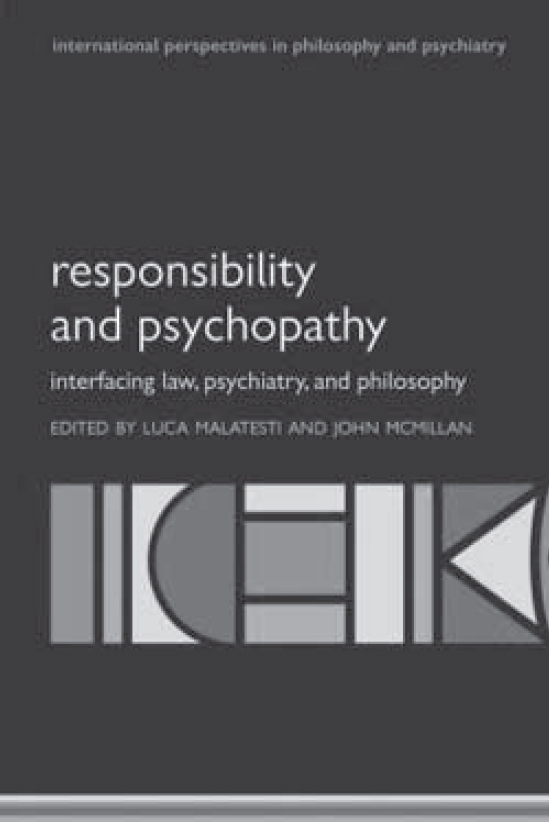
If psychopaths did not exist, philosophers would have invented them. This book explores the moral questions raised by the existence of individuals whose moral emotions seem to be reduced or absent. The authors start from the premise that, long before the work of Robert Cleckley and Hervey Hare, philosophers interested in moral judgement have experimented with the idea of a person with no feelings and no empathy for others. What sort of moral judgements would they make? Would they be ‘moral’ at all? And if a person did exist who was persistently and incorrigibly cruel, how should we (the society affected by these people) respond to them morally?
Both philosophers and psychopathy researchers have attempted to answer these questions; and this rich book is a compilation of their answers. The book combines together essays from lawyers, psychologists and philosophers; Luca Malatesti and John McMillan have an established track record in making these collaborations fruitful, and the contributions in this book are clear and lucid. I particularly recommend the chapters by Robert Hare and colleagues, and one by Antony Duff who offers a welcome follow-up to a previously influential paper published in 1977.
I recommend this book for anyone who has an interest in the effect of mental disorders, especially personality disorders, on moral reasoning. It offers an interesting consensus view about the moral responsibility of psychopaths; namely, that because (Hare) psychopaths have emotional reasoning deficits, they should not be held responsible for their actions, and should therefore not be punished. I have no quarrel with this conclusion particularly; but I thought the argument would have been stronger if there had been more human material from those people called ‘psychopaths’. There is an irony here that if we treat them as pure objects of study, and not as people with voices (albeit disturbing ones), then we become, as it were, psychopathic. It was the depth and thickness of Cleckley’s clinical descriptions that stimulated the research into psychopathy that is the basis for this book; and I missed such descriptions in this work.
There is another point that needed more emphasis. Neither the word ‘evil’ nor ‘violence’ appears in the index of Cleckley’s original work on psychopathy. It is Robert Hare and his group who have identified a subgroup of violent offenders who are persistently cruel and violent, and who better fit the stereotype of psychopathy beloved of philosophy and movie-goers alike. The people we think of as ‘Hare’ psychopaths are a minority of violent offenders, let alone criminals: not all violent criminals are psychopaths, and hardly any non-violent criminals. None of the men at the Wannsee conference in 1941 who planned the Final Solution would score highly on Hare’s Psychopathy Checklist. We should therefore be cautious about inferring too much about the nature and scope of normal human moral reasoning based solely on a small group of highly selected individuals with antisocial behaviours. In my experience, the most common and significant failures of moral reasoning happen every day in the minds of ordinary men and women.



eLetters
No eLetters have been published for this article.